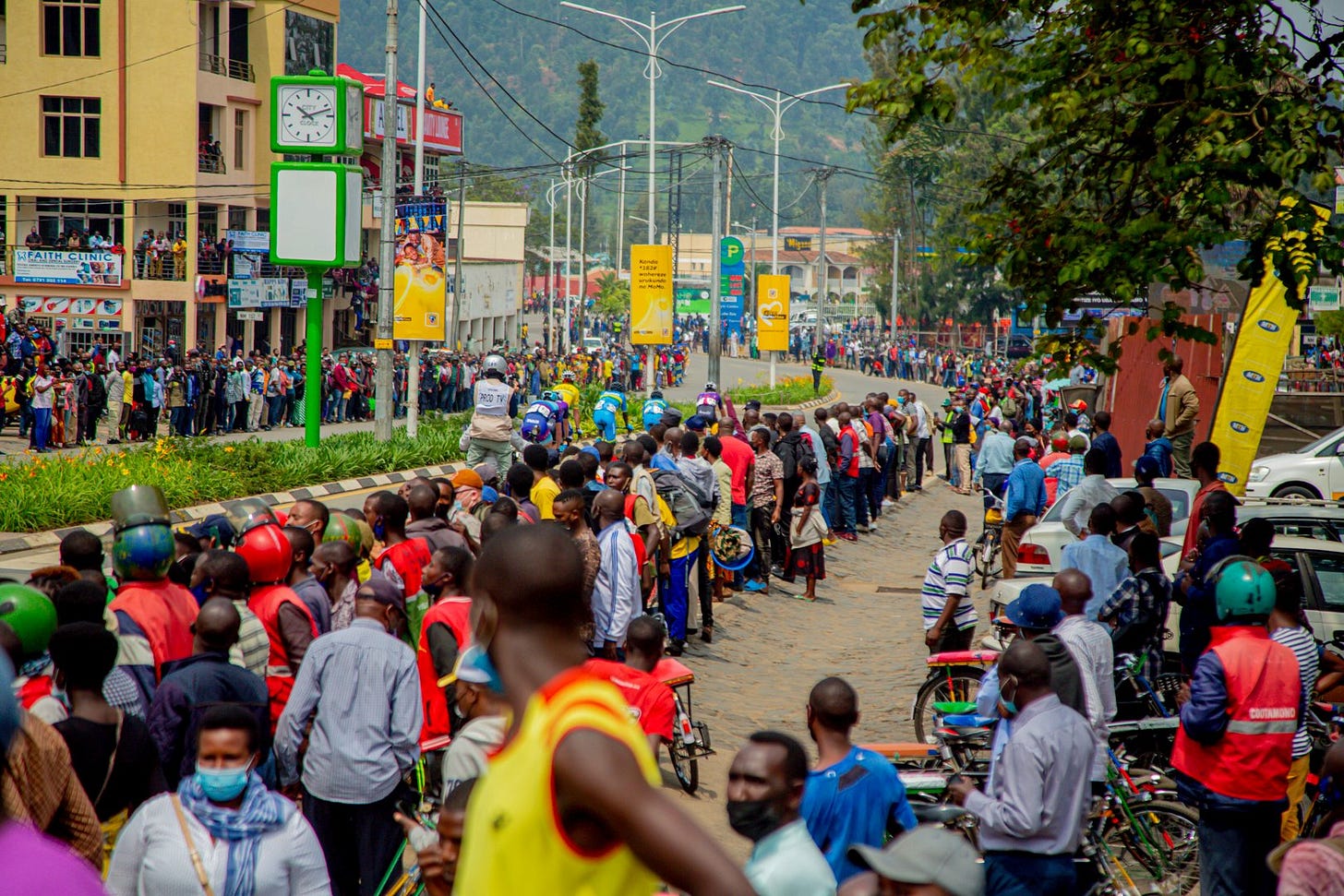Sending a Message
The UCI World Championships in Rwanda pose an era-marking opportunity for cycling, and for the professional cyclists who compete there.
Staging this September’s World Cycling Championships in Kigali, Rwanda promises to be groundbreaking and common ground-establishing: an opportunity for the UCI, the sport’s governing body, to put meat on the bones of its stated desire to globalize cycling’s popularity, and to democratize its following.
The handful of tales of riders from Ethiopia, Colombia or Mexico working in local shops, training on coaster-brake cruisers, and somehow pedaling their way to the Tour de France pose the rare exceptions to the rule: cycling largely remains a sport of the moneyed global north and west: principally European, with seeds of popularity taking root in North America and Australia — and a shoot here and there in South America and Asia.
The UCI’s statement that Rwanda would host the 2025 World Championships was bold indeed: for all its emphasis on technological innovation, cycling is culturally traditional: soon after the announcement, riders and teams began to declare their reticence: too far, too hot, insufficient infrastructure, too…different.
They’re not seeing the grand opportunity: to make good on the UCI’s bold statement by upending convention, escaping comfort zones, and breaking cultural norms and barriers.
Or more crassly, to spend one race in a career in an unusual place that’s certain to yield far better stories and far more share-worthy photos than anything back home.
Rwandans are already cycling mad; as one friend who has spent long stretches there told me, “The entire country will come out to watch the races.” I predict that the throngs on Mt. Kigali will make Dutch Corner look like the few friends who show up to watch a business-park criterium: already I’m looking forward to the post-race interviews, when cyclist after cyclist proclaims, “I’ve never heard fans like that!
”
Either way, the pitch to race in Kigali is the same as the classic pitch to travel off the proverbial beaten path: It might not be comfortable, but the lessons, tales, relationships — and IG posts — will make it all well worthwhile.
True threats to riders’ and staff members’ safety would change this risk-reward equation, but violence on Rwanda’s border with the Democratic Repulic of the Congo remains isolated and limited, and Rwanda is otherwise a calm nation: While its rise from the ashes of the horrific genocide of the ‘90s has been enabled partly through authoritarianism, this has largely been Africa’s finest version of benevolent dictatorship: the government has its detractors, but Rwandans have consistently demonstrated their support for policies that have brought about order, economic vitality, cleanliness (a rarity in large African capitals) and national pride.
Alas: even if riders, teams and fans from abroad shake off their hesitation about racing in a wholly unfamiliar land, another kind of trepidation may well steer them away from Kigali 2025: the organizers have devised the most fearsome Worlds course ever, with nearly 18,000’ of climbing in the Elite Men’s Road Race. Even culturally confident non-climbers may stay away — so no van der Poel, no van Aert, no Pedersen — not even Africa’s Girmay.
What we need, then, is another grand statement, a commitment to race from the racer who fears not stratospheric cols, nor precipitous bergs, nor pavé nor Strade Bianche: the G.O.A.T. himself, Tadej Pogaçar.*
“Pogi,” let’s hear from you. Throw down the gauntlet. Send a message — one of confidence to your rivals, to cycling fans, and to the UCI, and of love to the nation of Rwanda, which so heartily longs to host this event:
Tell us you’ll be there. Tell us you’ll race Worlds in Kigali, in Rwanda, in Africa.
Photo credits: UCI



